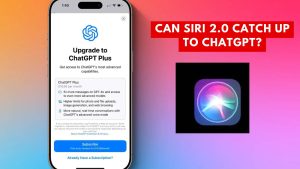In 2025, smartphones are more vulnerable than ever to cyber threats like malware, phishing, and spyware. As our devices store critical personal and financial data, using reliable mobile antivirus apps has become essential. These apps now offer advanced protection features such as real-time threat detection, privacy tools, and performance boosters. With so many options available, this guide highlights the top mobile antivirus apps in 2025, helping you find the best one for your device and digital lifestyle.
Why You Need Mobile Antivirus Apps in 2025
Cybersecurity threats are evolving rapidly in 2025, and mobile devices sit directly in the crosshairs. Mobile malware has grown in both sophistication and volume, targeting Android and iOS users with alarming precision. Whether you’re browsing a website, installing an app, or connecting to public Wi-Fi, cybercriminals are ready to exploit every possible vulnerability.
Smartphones have become more than just communication tools—they now hold the keys to your digital identity. Losing control of your device could lead to financial loss, data breaches, or even identity theft. That’s where mobile antivirus apps step in. These tools actively scan for threats in real time, monitor app behavior, block malicious websites, and safeguard your personal information.
Major Trends affecting Mobile App Development
No matter your role—student, professional, or small business owner—mobile antivirus apps deliver around-the-clock protection. In a world where cyber threats are smarter and faster than ever, installing a reliable antivirus app on your phone isn’t optional—it’s essential.
Best Free Mobile Antivirus Apps with No Hidden Costs in 2025
As mobile threats rise sharply in 2025, having a reliable antivirus app on your phone has become non-negotiable. Not everyone is ready—or able—to pay for premium mobile security. The good news? Several trustworthy antivirus apps offer strong protection completely free, without sneaky in-app charges or data-harvesting schemes.
These apps are perfect for users who want essential security without breaking the bank or compromising privacy. Below are the best free mobile antivirus apps you can confidently rely on in 2025:
1. Avast Mobile Security: A Feature-Rich Free Defender
Avast Mobile Security remains a standout name in the mobile antivirus space, and for good reason. Its free version delivers a robust suite of protective features that many competitors hide behind paywalls.
You get an efficient virus scanner that actively monitors and removes threats from your device. It also includes Wi-Fi network security checks, which alert you when you’re connected to a risky or unprotected public network—a common entry point for hackers. The junk cleaner is a bonus, helping users remove unnecessary files and boost phone performance.
Avast throws in a call blocker, which is particularly helpful for users plagued by spam calls. While you might encounter occasional ads, Avast doesn’t hide its core functionality behind a paywall. All these features work out-of-the-box, with no pressure to upgrade, making it a great choice for users who want solid protection without surprises.
2. Bitdefender Antivirus Free: Lightweight, Fast, and Effective
Bitdefender has built a reputation over the years for providing high-end antivirus tools with minimal system impact, and its Antivirus Free for Mobile lives up to that reputation.
This app focuses on real-time threat detection and automatic scanning, without bogging down your phone’s performance. It runs silently in the background, using cloud-based scanning to catch malware before it becomes a problem. One of the biggest strengths of Bitdefender’s free offering is that it’s completely ad-free, with no pop-ups or upgrade nags that interrupt your experience.
There’s no bloatware, and you won’t find unnecessary tools trying to upsell you. It’s a clean, straightforward app designed for users who value speed and simplicity along with reliable protection. If you want a quiet app that just does its job and stays out of the way, Bitdefender Free is a top contender.
3. Sophos Intercept X for Mobile: Enterprise-Level Protection, Zero Cost
Sophos Intercept X for Mobile brings professional-grade cybersecurity tools directly to your smartphone—and impressively, it does so at no cost.
This app is built with serious security in mind. It offers advanced malware protection, real-time web filtering, and even app scanning that evaluates every new app you install. Sophos goes beyond typical free antivirus solutions by adding features like link checking, Wi-Fi security alerts, and privacy advice. For example, it will notify you if an app requests suspicious or excessive permissions, helping you stay aware of privacy risks.
What truly sets Sophos apart is its no-ads, no-tracking policy. Despite its power-packed capabilities, it remains fully free and ad-free. It’s a top-tier option for users who want more than just basic antivirus scanning—especially those who take privacy and control seriously.
4. Kaspersky Mobile Antivirus: Trusted Brand, Strong Free Tools
Kaspersky has long been one of the most trusted names in cybersecurity, and its Mobile Antivirus app continues that legacy in 2025—even in the free version.
The free tier provides on-demand virus scanning, which helps detect and remove existing malware on your phone. It also includes anti-theft features such as remote device lock and wipe, allowing you to protect your data if your phone is lost or stolen. These are especially valuable for users who carry sensitive personal or work-related information.
Although Kaspersky offers a premium upgrade, the free version stands strong on its own. It doesn’t restrict you to a trial, and it avoids the heavy ad bombardment seen in other free apps. If you’re looking for a reliable antivirus app with proven protection, Kaspersky’s free tier offers solid defense without forcing your hand into paying for basic features.
Mobile Antivirus Apps for Android: Which Ones Actually Work?
Android’s open ecosystem makes it vulnerable to malware, spyware, and other malicious software. To protect your device, here are three top antivirus apps tailored specifically for Android in 2025:
1. Norton 360 for Mobile
Norton 360 offers comprehensive protection with an app advisor to check apps before downloading, real-time web protection, and a secure VPN to safeguard your data on public Wi-Fi. The free version provides core features like malware scanning, while the paid version adds extra tools like remote lock and wipe.
2. Malwarebytes for Android
Malwarebytes is known for its strong malware detection engine. It scans both installed apps and their behavior, providing real-time protection and blocking phishing scams. It’s ideal for users who want a simple, efficient tool that stays on top of new threats.
3. McAfee Mobile Security
McAfee offers anti-theft features, secure browsing, app lock, and performance optimization tools. It’s a versatile choice for Android users who want both security and device performance improvements. The app supports multi-device protection, making it a great option for business users.
Lightweight Mobile Antivirus Apps That Won’t Slow Your Phone
In 2025, many users hesitate to install antivirus apps due to concerns about performance. Thankfully, several lightweight options offer excellent protection without slowing down your device.
1. Bitdefender Mobile Security
Bitdefender is a cloud-based solution that minimizes impact on your phone’s resources. It runs silently in the background, offering real-time protection against malware and other threats without draining battery or slowing down performance. Ideal for those seeking powerful protection with minimal performance loss.
2. ESET Mobile Security
ESET delivers robust protection against ransomware, phishing, and malicious websites while consuming minimal system resources. It runs efficiently in the background, providing real-time scanning, web filtering, and anti-theft features, all without compromising your phone’s performance.
3. Webroot Mobile Security
Webroot is one of the lightest antivirus solutions available, making it ideal for older devices or phones with limited resources. It uses a cloud-based engine for fast scanning, offering anti-malware, anti-phishing, and lost-device protection with little to no impact on your phone’s speed.
Top Mobile Antivirus Apps with Real-Time Threat Detection
In today’s fast-evolving cybersecurity landscape, real-time protection has become a must-have feature for mobile antivirus apps. It allows your phone to detect and neutralize threats as they occur, preventing malware, spyware, and other malicious activities from affecting your device.
Here are three top antivirus apps in 2025 that offer real-time threat detection, ensuring your device remains protected from the moment you turn it on.
1. Norton 360 Mobile: Advanced Real-Time Protection
Norton 360 Mobile stands out as one of the most comprehensive antivirus apps available, particularly when it comes to real-time scanning and malware detection. Powered by one of the most advanced detection engines in the world, Norton offers continuous protection against a wide range of threats, including viruses, Trojans, ransomware, and more.
The app not only detects and blocks malicious apps as they attempt to enter your device but also extends its protection to unsafe websites and networks. Norton’s real-time web protection ensures that you are notified instantly if you’re about to visit a dangerous site or connect to an insecure Wi-Fi network. This proactive approach to cybersecurity makes Norton an excellent choice for users who want comprehensive, hands-off protection for their mobile devices.
Beyond real-time malware detection, Norton 360 includes additional features like a secure VPN, cloud backup, and even anti-theft tools. These added layers of protection ensure that you not only block threats in real-time but also secure your sensitive data and maintain privacy while using your mobile device.
2. AVG Antivirus: Constant Protection with Behavior Monitoring
AVG Antivirus offers one of the most user-friendly mobile security solutions with robust real-time protection features. The app runs continuously in the background, actively scanning for malware, spyware, and viruses, and removing them before they can install on your device. This constant vigilance ensures that your phone stays protected from new and emerging threats.
A standout feature of AVG is its App Behavior monitoring. This tool scans installed apps and monitors their behavior in real-time. If an app starts acting suspiciously—whether by accessing unnecessary permissions, using excessive resources, or exhibiting behaviors typically seen in malware—AVG alerts you immediately. This can help you spot potential threats before they cause any damage.
AVG’s real-time protection extends to its web protection feature, which scans URLs and prevents you from visiting harmful websites. The app also includes anti-theft functionality, ensuring that if your phone gets lost or stolen, you can remotely lock or wipe it to protect your data.
3. Avira Antivirus Security: Comprehensive Real-Time Protection
Avira Antivirus Security is another strong contender for those seeking real-time threat detection on their mobile devices. Known for its strong focus on privacy and security, Avira offers anti-ransomware protection, which is particularly important as ransomware attacks continue to rise. This feature works in real-time, actively scanning apps and files for potential threats that could lock your data or compromise your privacy.
Avira’s real-time protection also includes phishing detection, warning you about malicious links or websites that attempt to steal your sensitive information, such as login credentials and personal data. This is especially useful when navigating unfamiliar sites or receiving unsolicited emails and texts with suspicious links.
Avira includes unique features like camera and microphone monitoring, which protects your privacy by alerting you when apps attempt to access these features without your consent. Another notable tool is the Privacy Advisor, which evaluates app permissions and informs you if any apps are requesting unnecessary or excessive access to your personal information.
The app’s ability to provide comprehensive, real-time protection across multiple vectors—malware, ransomware, phishing, and even privacy—makes it a solid choice for users who want a mobile security app that covers all bases.
How to Choose the Best Mobile Antivirus App for Your Device
Selecting the right mobile antivirus app for your device can be overwhelming given the wide variety of choices available today. In 2025, cyber threats are becoming more advanced, so it’s important to choose an app that meets your specific needs and protects your device against these evolving risks.
Below are the key factors to consider when choosing the best mobile antivirus app for your phone.
1. Device Platform (Android vs. iOS)
The first consideration when choosing an antivirus app is the platform you’re using—Android or iOS. Android’s open ecosystem allows users more freedom in customizing their devices and installing apps, which also makes it more vulnerable to malware, spyware, and other threats. As a result, Android users typically need more robust antivirus protection compared to iOS users.
On Android, antivirus apps need to be powerful enough to handle threats from third-party app stores and malicious websites. For Android users, look for apps that provide real-time scanning, app behavior monitoring, and web protection.
On the other hand, iOS has a more closed ecosystem, with stricter app review processes and less exposure to malware. While iOS devices are less likely to be compromised by malicious apps, you still need privacy-focused tools and protection against phishing, identity theft, and data breaches. Privacy features such as app permission control and anti-tracking tools are more important for iOS users than full-fledged antivirus scans.
2. Real-Time Protection
One of the most essential features to look for in any mobile antivirus app is real-time protection. While some apps offer on-demand scans, which allow you to manually check your phone for threats, real-time protection offers automatic and continuous scanning. It actively monitors your device for potential risks and blocks them before they can cause harm.
Real-time protection is essential for detecting threats such as viruses, malware, ransomware, and phishing attempts as soon as they appear. A good antivirus app will notify you instantly if it detects any suspicious activity, whether you’re downloading apps, browsing the web, or using Wi-Fi. This type of protection provides peace of mind, knowing that your device is constantly being monitored and secured.
3. Resource Usage
An important factor to consider when choosing a mobile antivirus app is its resource usage. Some antivirus apps are notorious for consuming excessive battery, RAM, and processing power, which can slow down your device significantly. This is especially problematic for users with older phones or devices with limited memory.
If you have a budget or older device, look for antivirus apps that are optimized for performance. Apps like Bitdefender and Webroot are known for their lightweight design, running quietly in the background without draining your battery or slowing down your phone. These apps utilize cloud-based scanning, which reduces the strain on your device’s resources while still offering comprehensive protection.
If you have a high-performance device, you may have more flexibility in choosing a robust antivirus app with a wider range of features, but for resource-conscious users, opt for lightweight solutions to avoid compromising your device’s speed and functionality.
4. Feature Set
Another important consideration is the feature set of the antivirus app. Different apps offer various additional tools that can enhance your device’s security beyond just malware protection. Some useful features to look for include:
- VPN (Virtual Private Network): A VPN can mask your IP address and encrypt your internet traffic, ensuring that you browse safely and securely, especially on public Wi-Fi networks.
- Anti-Theft Tools: Features like remote lock, wipe, or location tracking can help protect your data in case your phone gets lost or stolen.
- App Locking: Some antivirus apps include app lock functionality, which adds an extra layer of security to sensitive apps like messaging or banking apps.
- Identity Protection: Apps that offer identity theft protection and monitoring can alert you if your personal information is exposed or used fraudulently.
When choosing an antivirus app, evaluate the additional features offered and determine if they align with your needs. If you’re a business user, for example, tools like secure browsing, email protection, and app lock may be a must-have.
5. User Reviews and Update Frequency
User reviews can provide valuable insights into how effective and reliable an antivirus app is. When browsing app stores or online reviews, pay attention to feedback from real users regarding the app’s performance, ease of use, and effectiveness at detecting and blocking threats.
Another critical factor to consider is how often the app is updated. Cyber threats are constantly evolving, and an antivirus app that doesn’t receive regular updates may quickly become ineffective against newer types of malware. Choose an app that is frequently updated, ensuring that the software is always equipped with the latest protection methods and signatures to keep your device safe.
6. Free vs. Paid Versions
Many antivirus apps offer both free and premium versions. While free versions provide basic protection against malware and viruses, paid versions often include additional features, such as real-time scanning, VPN services, identity theft protection, and priority customer support.
If you need basic protection and are on a tight budget, a free version might be enough for your needs. If you want enhanced security features like advanced malware protection, data breach monitoring, or ad-free usage, investing in a paid version may be worth it. Premium versions also tend to have fewer ads and better customer support, which can be essential if you encounter any issues or need assistance.
8 Questions to Ask when Hiring a Mobile App Development Company
The right choice for you depends on your usage habits, the type of threats you’re likely to face, and your device’s performance capabilities. But whatever you choose, don’t delay. Mobile security starts with one tap—and that tap could be the one that protects your digital life.
FAQs
1. What are mobile antivirus apps?
Mobile antivirus apps are software tools designed to detect, block, and remove malware, viruses, spyware, and other security threats from smartphones and tablets.
2. Do I really need a mobile antivirus app in 2025?
Yes. With the rise in mobile-based cyberattacks, phishing, and malicious apps, having a trusted mobile antivirus app is essential for protecting personal and financial data.
3. Are free mobile antivirus apps effective?
Many free mobile antivirus apps offer basic protection such as malware scanning and privacy checks. However, paid versions usually include advanced features like real-time protection and anti-theft tools.
4. Which mobile antivirus app is best for Android?
Top-rated options for Android in 2025 include Bitdefender, Avast, Norton, and Kaspersky, offering strong malware detection and additional privacy features.
5. Do iPhones need antivirus apps too?
While iOS has built-in security, iPhones can still benefit from antivirus apps that offer web protection, VPN, and anti-phishing tools, especially for safe browsing and app control.
6. Will a mobile antivirus app slow down my phone?
Lightweight antivirus apps are optimized to run in the background with minimal impact on battery life or device performance. Look for apps specifically designed for speed.
7. Do mobile antivirus apps offer real-time protection?
Yes, most premium antivirus apps offer real-time threat detection, which scans apps, files, and links as you use your phone to stop threats before they cause harm.
8. Can mobile antivirus apps protect against phishing?
Absolutely. Many mobile antivirus apps now include anti-phishing tools that block malicious websites and warn you before you click suspicious links.
9. Are mobile antivirus apps safe to use?
Yes, as long as you download them from trusted sources like Google Play or the App Store. Avoid unknown third-party apps claiming to offer antivirus protection.
10. What features should I look for in a mobile antivirus app?
Key features to consider include real-time malware scanning, web protection, privacy advisor, app lock, VPN, anti-theft tools, and performance optimization.






